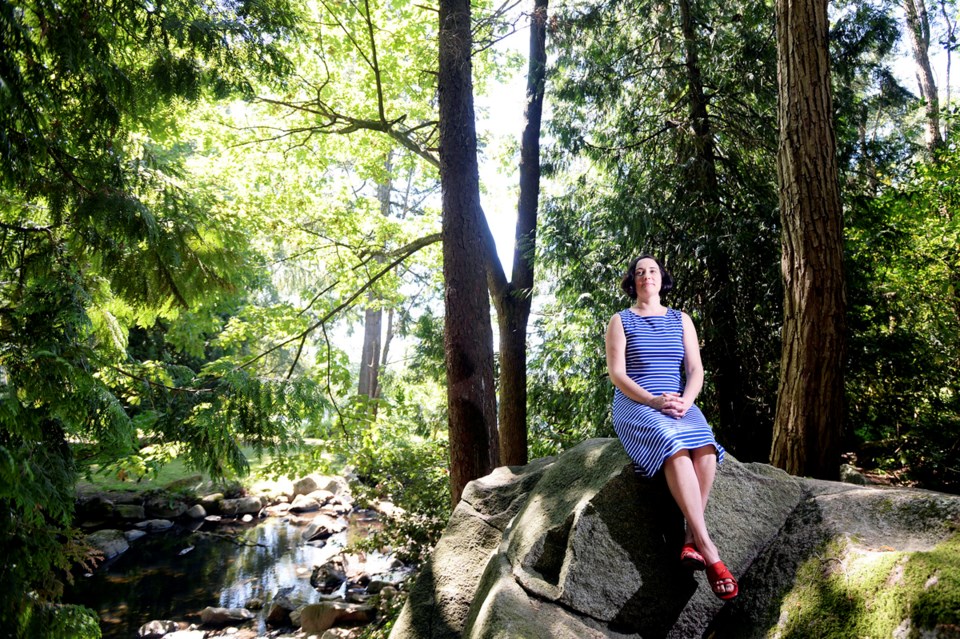I’m not a saint. How many people have said this as a way of excusing bad behaviour? Catherine Kelly wants people to remember this about saints: They are not angels or some other superhuman figures. They were human, first and foremost.
Kelly is leading a special event through St. Mark’s College on the UBC campus, called “The Secret to Becoming a Saint: A Lenten Retreat.”
Lent is the period leading up to Easter, a time, Kelly says, of returning back toward God. Many Christians set time aside during Lent specifically to focus on spiritual matters and turn attention to God.
“It’s a time when we are called to pray, to fast and to give alms,” she says. “It’s really a time to reorient ourselves toward God and toward God’s love for us, so that we are spiritually and mentally prepared for the great gift of Easter.”
Looking at and emulating the lives of the saints may be a very traditional way of pursuing what we commonly call “self-improvement,” but I ask her if it is not a bit of a burden to compare ourselves to people who are … literally saints?
“These are real people who lived real lives, who faced real issues, whether it was poverty or the plague,” Kelly replies. “They were humans too. They were facing very real life issues just like we are. Maybe it was just one character trait that allowed them to shift.”
These character traits are the things she, and participants in the retreat, will explore on Saturday, March 11.
Becoming a saint may not be an item on your bucket list, but neither was it for the now-canonized.
“They didn’t desire to become a saint,” she says. “They just desired to live their life and have a close relationship with God.” Her retreat will explore how people today can seek that kind of experience.
People need models of behaviour and examples for living, says Kelly, who is retreat director for the Roman Catholic college.
“Even kids love superheroes,” says Kelly. “The saints are the superheroes of the church. People need models. We need inspiration.”
And while she acknowledges the role of superheroes, as well as the possibility that the lives of the saints could be a model for self-improvement, there is a key difference, Kelly stresses.
“The source of that is not yourself,” she says. “God is the source for helping improve yourself.”
For example, she says that St. Francis of Assisi, one of the saints the retreat will look at, was able to adopt a degree of humility that allowed him to do great things for God.
“St. Francis of Assisi found that our sense of powerlessness, being able to embrace that, allows God to be able to work through us,” she says. “By modelling, by actually living out our lives as Christians, that is a greater sermon than actually preaching to people. He said: ‘Preach the gospel at all times, use words only if necessary.’”
Saint Thérèse of Lisieux, another example she will invoke, believed in doing small things with great love.
“That’s something tangible, that’s something everybody can do,” says Kelly. “We don’t have to go out and be martyrs. We can do what we do in our daily lives with great love. Probably the easiest thing is to see it in your daily relationships. It’s coming from a perspective of how much you are loved by God and, living out that, your natural response would be to give love. It might be taking a breath before responding to someone and being more charitable and more loving in your responses with people. Small things like that.”
In many instances, saints were ordinary people who did extraordinary things.
“Think of Oscar Romero,” Kelly says, referencing the Archbishop of San Salvador, who was assassinated in 1980 while celebrating Mass, a day after he called for Salvadoran soldiers to refuse to carry out the military government’s repressions. “He’s a modern-day person held up for canonization. He was not afraid to speak up against social injustice.”
Kelly will also look at some of the 12 Canadian saints, including St. Kateri Tekakwitha, a young Mohawk woman who lived in 17th-century Quebec and who, five years ago, became the only North American First Nations person canonized.
PacificSpiritPJ@gmail.com
@Pat604Johnson



